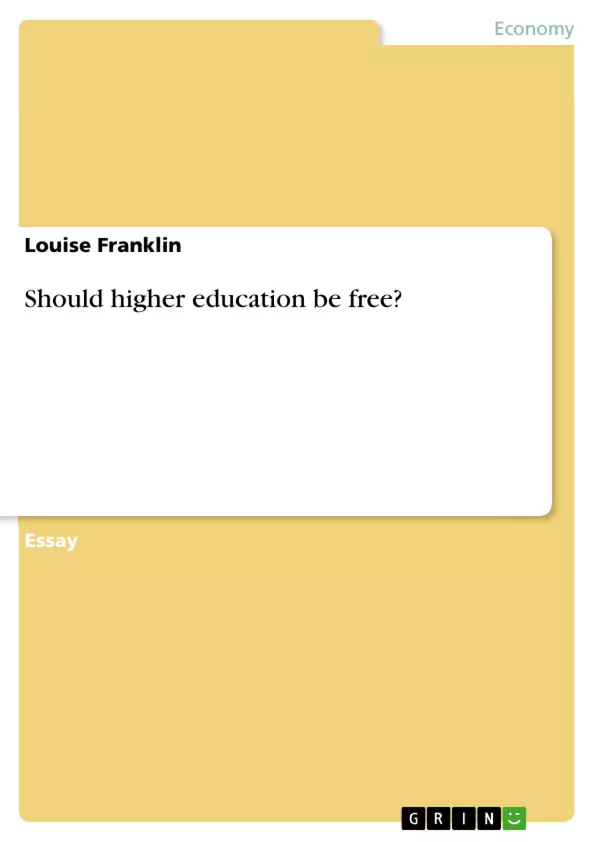A discussion of whether higher education in the UK should be offered to students free of charge, taking into consideration both the ethical and economical issues as well as the potential burden on taxpayers.
Table of Contents
- Introduction
- Demand
- Current Funding
- Rational Choices
- Economic Systems
- Rationing
- Market Structure Theory
- Proposals of Funding – Free/ Part Free / Pay All
- FREE
- PART FREE
- PAY ALL
Objectives and Key Themes
This article examines the current funding model for higher education in the UK and explores various proposals for change, including free tuition, partial government funding, and full student-funded tuition.- The ethical considerations surrounding access to higher education
- The role of the government in providing and funding higher education
- The economic implications of different funding models
- The impact of tuition fees on student demand and the value of a degree
- The fairness and equity of various funding models
Chapter Summaries
- Introduction: This section introduces the topic of higher education funding in the UK and highlights the ethical issues associated with making education accessible to all. It also establishes the context for the debate, comparing higher education to other public services such as healthcare.
- Demand: The author discusses the increasing demand for higher education in the UK, exploring factors that influence student choices such as price, reputation, and location. The impact of rising fees on international students is also mentioned.
- Current Funding: This section details the current funding model, where students pay a portion of the tuition fee and the government covers the rest. The author examines the fairness of this system, considering both the student's perspective and the taxpayer's burden.
- Rational Choices: This chapter explores the difficulty students face in making rational choices about higher education, given the uncertain benefits and the opportunity costs involved. The article highlights the complexities of the market and the lack of information available to students.
- Economic Systems: The author analyzes the economic model behind higher education in the UK, comparing it to a command economy, a free market, and a mixed economy. The impact of government regulation and the fixed tuition fee are discussed.
- Rationing: This section examines the rationing mechanisms used by universities in the UK, including entry level requirements and the perceived value of a degree in relation to alternative opportunities.
- Market Structure Theory: The article discusses the oligopolistic market structure of universities in the UK and the role of government regulation in preventing price competition.
- Proposals of Funding – Free/ Part Free / Pay All: The author explores three main funding proposals: free education, partially funded education, and fully funded education. Each proposal is analyzed for its potential impact on demand, fairness, and the economic landscape.
Keywords
This article focuses on the financing of higher education in the UK, examining themes of access, equity, fairness, economic efficiency, and government regulation. Key topics include tuition fees, demand, opportunity costs, market structures, and different funding models.Frequently Asked Questions
Should higher education be free in the UK?
This article discusses various models, including free tuition, and evaluates them based on ethical, economic, and taxpayer considerations.
What is the current funding model for UK universities?
Currently, it is a mixed system where students pay a portion of tuition fees and the government covers the remaining costs.
How do tuition fees affect student demand?
Demand is influenced by price, university reputation, and location, though students often struggle to make rational choices due to uncertain future benefits.
What is the "Market Structure Theory" in higher education?
The article suggests UK universities operate in an oligopolistic market where government regulation often prevents direct price competition.
What are the ethical issues of university funding?
Key ethical issues include ensuring equitable access for all social classes and balancing the burden between individual beneficiaries and society (taxpayers).
- Quote paper
- Louise Franklin (Author), 2010, Should higher education be free?, Munich, GRIN Verlag, https://www.grin.com/document/202063



